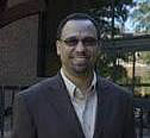Commentary on Mark 12:28-34
Nothing in Mark’s story prepared the reader for this conversation between Jesus and this Jerusalem scribe. Nothing!
Mark was a gifted storyteller and managed his narrative craftily. From the opening reference to a scribe (1:22) — during Jesus’ first public action — to the final position of this group mocking a dying Jesus (15:31), no reader could predict the story of this encounter in chapter 12. The scribes, as a character group in Mark’s story, were intimately involved in the conspiracy to kill Jesus. This impression, understandably, fills the minds of most readers of the Gospel narratives, making it difficult to hear any potentially neutral story about any member of this group.
Commentary
Our story falls within a series of conversations between Jesus and various sectarian leaders residing in Jerusalem, which began in Mark 11:27. This was the final discussion initiated by one of these leaders, since “no one dared to ask him any question” after this encounter (cf. Mark 12:34).
The mention of a “dispute” (in 12:28) recalls the previous story, in which Jesus held a theological conversation with the Sadducees over the belief in the resurrection. The scribe of 12:28, apparently, shared Jesus position, so he must have been a scribe associated with the Pharisees (cf. Acts 23:7-8). Indeed, in Matthew’s parallel, the character was described as a lawyer from among the Pharisees (cf. Matthew 22:34).
Debates about Torah flood the Gospel narratives. What the scribe requested was as common as attending synagogue on the Sabbath. In this customary, first century discussion, Jesus drew on scriptural traditions, citing Deuteronomy 6:4-5 — traditionally called the Shema, the standard daily prayer — and Leviticus 19:18. “Love for neighbor” provided Jesus’ theological understanding that love for the other elucidates most clearly one’s love for God. The scribe agreed!
It is possible that neither Jew — Jesus nor the legal expert — could imagine one kind of love without the other. [In Luke’s parallel, Jesus told the parable of the “kind Samaritan,” in order to give more specific meaning to the term “neighbor.”]
Part of the shock of this story was the agreement of the Jerusalem scribe. [Matthew disregards this agreement altogether.] Throughout Mark’s Gospel, the scribes were always evaluating Jesus’ activities. They judged Jesus theologically, charging him with “blasphemy” because he forgave someone’s sins (2:7); they evaluated Jesus’ eating company (2:16); some Jerusalem scribes claim he had “Beelzebul” because of his exorcizing activity (3:22); they questioned his disciples’ hand-washing practices (7:1, 5); along with priests and elders, they probed into the origins of Jesus’ authority (11:27-28), which the general populace perceived to be distinctive from the scribes (cf. 1:22); along with Jerusalem priests, they wanted to kill Jesus because they were afraid of his popularity (11:18, 32; 14:1), eventually leading to their working with Judas to capture Jesus (14:43); they assembled at a “trial” before the high priest (14:53), and, the next morning, consulted with others to “hand” Jesus over to Pilate (15:1); near the end of the story, Mark’s final reference, they “mocked” Jesus on the cross: “he saved others; he cannot save himself” (15:31). Ultimately, in Mark’s Gospel, some of the scribes, along with other Jerusalem leaders, were responsible for his condemnation and death (cf. 10:33).
But this one, individual scribe decided to engage Jesus. Furthermore, the scribe took it one step further than Jesus, by adding that this kind of love was “more important than … sacrifices,” a conclusion, in this setting, that seemed to be an implicit temple critique (cf. Hosea 6:6).
Did this Jerusalem scribe have an anti-Temple bias (cf. Mark 12:33)? To be clear, Jesus did not advocate the ceasing of “offerings and sacrifices.” Rather, he believed in “love” (for God and for neighbor) as a priority over physical, religious sacrifices (but this was not an anti-sacrifice sentiment). Indeed, no Jew (or, non-Jew, for that matter) in the first-century could imagine religion without animal sacrifices. It is hard to imagine an anti-Temple scribe in Mark’s narrative, so it is better to assume otherwise.
We shouldn’t be shocked that other Jewish leaders, besides Jesus, believed in the correlation between loving God and loving neighbor. In fact, this individual scribe, in a collectivist society, probably represented many Jewish leaders who appreciated Jesus’ teaching. We find hints elsewhere in the Gospel narratives (cf. Luke 7:3-5).
Jesus positively acknowledged the scribe’s well-spoken assessment: you are “not far from the kingdom,” a rare moment for the prophet from Galilee. The scribe’s wise response (nounechos), however, was not sufficient for joining Jesus’ group. It wasn’t just about being wise; something more was needed. Exactly what was not so clear from the immediate story. We may safely assume that it had something to do with acts of justice, since Jesus will heavily criticize the scribal alliance for their pride and unjust ways shortly after this encounter (cf. Mark 12:38-40).
So, what then?
Love God; love neighbor. Jesus’ greatest words have influenced Christian tradition accordingly. But the context of this story has often been forgotten.
This was a story about an agreement — between Jesus, Mark’s lead protagonist, and a scribe, a group member of Jesus’ leading archenemies. And, this moment of harmony should make any contemporary reader pause. Matthew’s ancient parallel refused to portray Mark’s story without adding in that this scribe arrived to “test” Jesus. Many interpreters read Mark’s account in the same manner. The scribe simply wasn’t really interested in arriving at common ground. But Mark’s account depicted this Jerusalemite as a sincere scribe. Jesus and this scribe agreed!
Stories like this one, rare as they are within the Christian canon, must drive us to become more willing to open up to the other, including the faithful people within our own religious tradition and those without. With Jesus, at the least, may we be able to admit that these people of faith are also “not far from the kingdom.” Can we go beyond Jesus and discover in our fellow companions of faith people who are “in” the “kingdom,” that is, they, too, have religious commitments that allow them to share in God’s love for the world. For many of us in the contemporary world, love for our neighbor coincides with a respect of our neighbor’s belief system or lack thereof. By this respect for our neighbor, we carry out the mission of human dignity, which, in turn, represents a love for the God of Jesus.


November 1, 2015